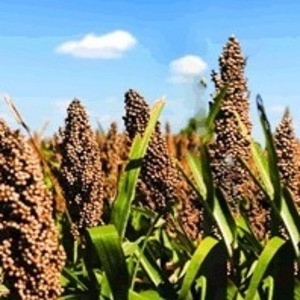Arcadia Biosciences, DuPont Pioneer collaborate on sorghum

November 26, 2013
BY Arcadia Biosciences Inc.
Arcadia Biosciences Inc. and DuPont Pioneer have announced their intention to collaborate to develop enabling technology to help manage pollen flow in sorghum. This technology will help facilitate the development and deployment of agronomic and quality traits in the crop. Under the agreement, Arcadia receives exclusive global rights to develop specified Pioneer technology for use in grain, forage, sweet, and biofuel sorghum types.
“Globally, sorghum is an important crop for food and feed and has significant potential as a highly productive biofuel source,” said Eric Rey, president and CEO of Arcadia. “Our agreement with DuPont Pioneer will speed the development of much-needed technologies that will create added value and improved crop performance for sorghum growers worldwide.”
“We believe improvements in crop productivity through our advances in reproductive biology play a critical role in increasing crop yield and quality,” said Marc Albertsen, DuPont Pioneer research director, Trait Discovery. “We have already seen success in this space through the implementation of DuPont Pioneer Seed Production Technology (SPT) process in corn and its development for rice. We are pleased to form an alliance with Arcadia to leverage our capabilities into sorghum.”
Grown on approximately 100 million acres globally, sorghum is the world’s fifth-largest cereal crop. It is mostly used for food, animal feed, and a variety of industrial applications around the world. While sorghum is a hardy crop well suited for hot and dry climates, plants are still affected by environmental stresses that impact grain and biomass yield and quality. The potential exists for numerous agronomic performance and quality traits to be developed and commercialized in sorghum. This collaboration between Arcadia and Pioneer is focused on developing core technology that will enable the deployment of such traits.
Advertisement
Advertisement
Advertisement
Advertisement
Related Stories
The U.S Department of Energy Bioenergy Technologies Office, in partnership with the Algae Foundation and NREL, on July 21 announced the grand champion and top four winning teams of the 2023 - 2025 U.S. DOE AlgaePrize Competition.
The USDA significantly increased its estimate for 2025-’26 soybean oil use in biofuel production in its latest World Agricultural Supply and Demand Estimates report, released July 11. The outlook for soybean production was revised down.
U.S. fuel ethanol capacity fell slightly in April, while biodiesel and renewable diesel capacity held steady, according to data released by the U.S. EIA on June 30. Feedstock consumption was down when compared to the previous month.
The U.S. EPA on July 8 hosted virtual public hearing to gather input on the agency’s recently released proposed rule to set 2026 and 2027 RFS RVOs. Members of the biofuel industry were among those to offer testimony during the event.
The USDA’s Risk Management Agency is implementing multiple changes to the Camelina pilot insurance program for the 2026 and succeeding crop years. The changes will expand coverage options and provide greater flexibility for producers.
Upcoming Events










